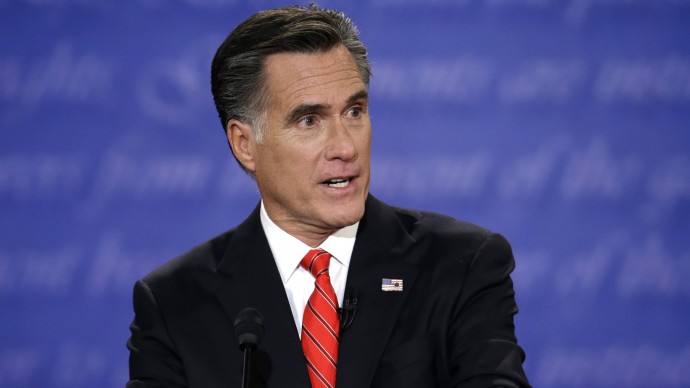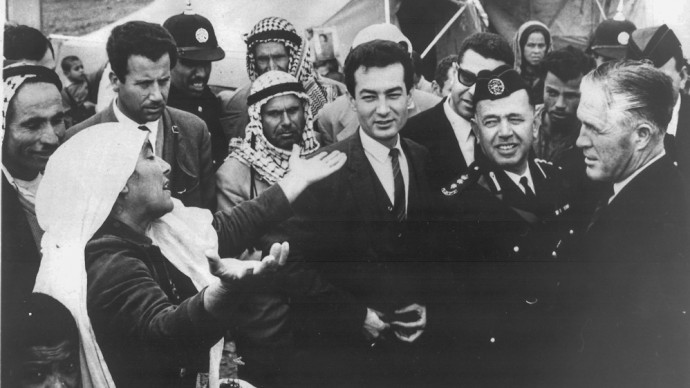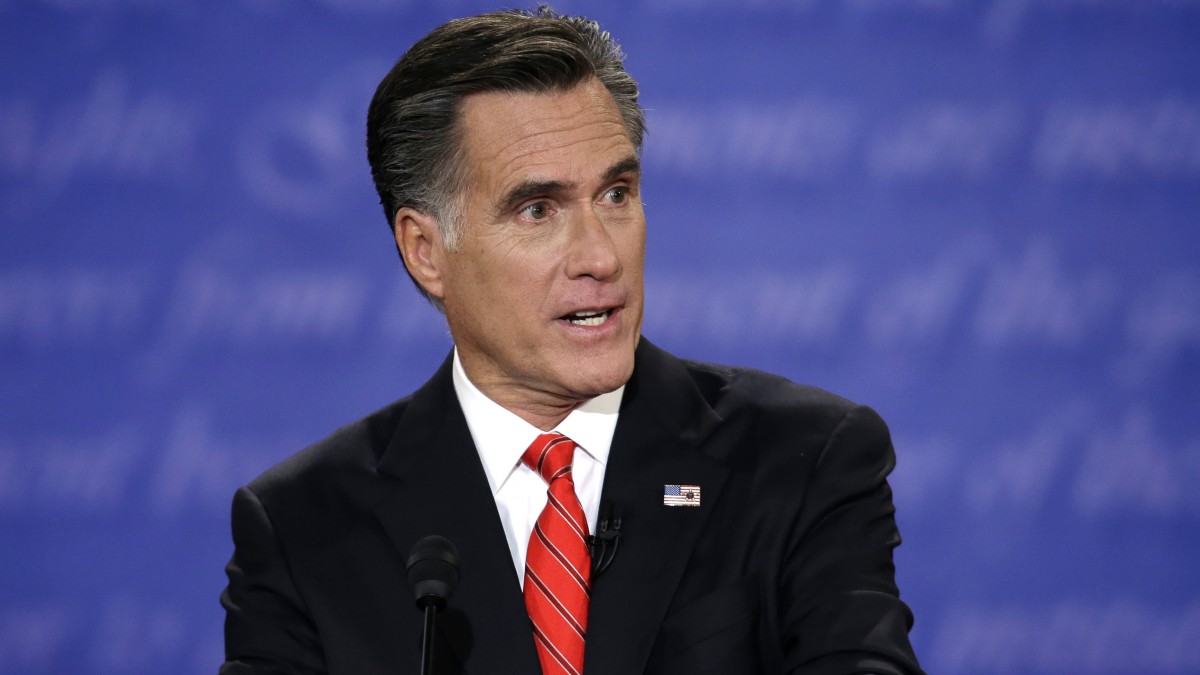
The last of the three presidential debates was supposed to focus on foreign policy, but it was obvious that both candidates were set on continuing where they left off from the previous debate: the U.S. economy and unemployment.
When Bob Schieffer, the moderator, steered the candidates back to topics such as national security; Iran; the wars in Iraq, Afghanistan; and the Middle East in general, both candidates seemed to be in agreement. Mitt Romney, fearful of slipping up and saying something that could hurt his bid for the White House, repeated almost verbatim what the president said. In the end, it wasn’t so much a debate as much as it was a character analysis.
Both candidates reiterated over and over again, in varying ways, the importance of America’s strategic ties to Israel. One word that neither candidate brought up was “Palestine” or “the Palestinians,” for that matter. It was almost as though they were both dancing to the same tune on what approach they would take in solving the Middle East crisis, without ever delving into the crux of the problem, the Palestinian dilemma.
I recently came across a photograph of the former Michigan Gov. George Romney, the father of GOP presidential candidate, Mitt Romney, which caught my attention. The photo shows the governor meeting Palestinian refugees inside the Ghor Nimrin Camp on the east bank of the Jordan River, in December 1967, six months after Israel defeated the Arab armies in the decisive six-day war. What made this photograph even more interesting was it was taken shortly after the governor had announced his candidacy to be the Republican nominee for president.
Similar to his son Mitt, George Romney felt that he needed greater international exposure if he was going to defeat the veteran politician and former vice president Richard Nixon in the Republican primary.

In November 1967, Gov. George Romney traveled to Europe to visit with U.S. allies England, France and Germany, followed by a visit behind the Iron curtain to Moscow and Warsaw. After Europe he went on to Israel and had talks with the then Prime Minister Levi Eshkol and both the Foreign Minister, Abba Eban and Defense Minister Moshe Dayan.
After spending two days in Jerusalem, the governor crossed over the Jordan River and visited with Palestinian refugees who were still streaming in from the Israeli-controlled West Bank. Romney went to two temporary camps set up in the Jordan Valley, before going on to meet with King Hussein in Amman. When pressed by reporters about his trip to the East Bank he said, “I have come here to look, to listen and to learn.”
From the Middle East Gov. George Romney continued on to Thailand, South Vietnam, Indonesia and Singapore before returning home.
By comparison, 45 years later when George Romney’s son, Mitt, had all but sealed his bid to becoming the Republican nominee, he also embarked on a trip overseas to bolster his foreign policy credentials. However, unlike his father, Mitt decided to play it safe (a common theme with his candidacy) visiting London just in time for the Olympics, Israel and Poland America’s three closest allies abroad.
During the first leg of his trip, he embarrassed his hosts in London by making a comment about the lack of security at the Olympic games. His second leg to Israel seemed more like a campaign and fundraising stop rather than a credibility tour. The headline in the daily Haaretz summed up a speech he gave to a right-wing hawkish audience in Jerusalem, “It was Romney’s voice but Netanyahu’s words.”
Romney went on to proclaim Jerusalem the capital of Israel and he said that America should not publicly criticize Israel. When mentioning the Palestinians, it came out sounding as though they were culturally and economically inept — statements which infuriated our allies around the world, not to mention the Palestinians.
Other than meeting briefly with Palestinian Prime Minister Salam Fayyad, Romney stayed clear of everyone, including members of the Israeli opposition labor party, preferring instead spent to spend time with those who share his same ideological and political views, like Israeli Prime Minister Benjamin Netanyahu. Romney even canceled a pre-scheduled meeting with Palestinian Authority President Mahmoud Abbas.
Before departing Israel for Poland, Romney’s campaign team organized a fundraiser where they invited 150 wealthy American-Jews residing in Israel.
Mitt Romney may have inherited his father’s business sense but he obviously did not inherit any of his father’s tact.
If this is a precursor to what a Mitt Romney foreign policy would look like, then God help America.


